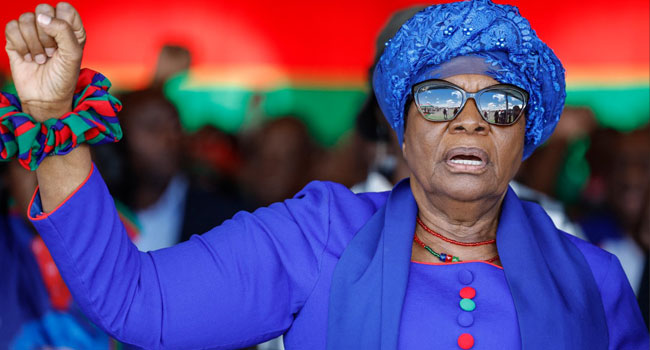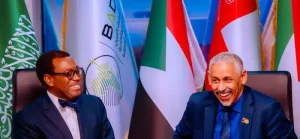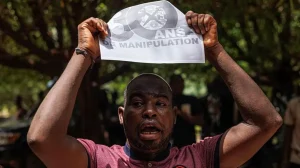
Namibia’s ruling SWAPO party has declared Vice-President Netumbo Nandi-Ndaitwah the winner of the November 27 presidential election, marking her as the country’s first female president. The election, extended twice due to logistical and technical challenges, has been marred by disputes, with the main opposition refusing to recognize the outcome.
The Electoral Commission of Namibia (ECN) announced that Nandi-Ndaitwah, 72, secured 57% of the votes, defeating Panduleni Itula of the Independent Patriots for Change (IPC), who garnered 25.5%. The election saw a voter turnout of nearly 77% from Namibia’s 1.5 million registered voters.
Nandi-Ndaitwah, a SWAPO veteran often referred to by her initials, NNN, becomes the first woman to lead the mineral-rich southern African nation since its independence in 1990. Known for her conservative upbringing and gold-framed glasses, she pledged during her campaign to “create jobs by attracting investments using economic diplomacy.”
However, the election process was fraught with problems. Shortages of ballot papers and malfunctioning electronic voter registration tablets caused hours-long delays, with some voters reportedly waiting over 12 hours. The IPC and other critics claim these issues were deliberate attempts to suppress voter turnout.
Panduleni Itula, the IPC’s presidential candidate, cited “a multitude of irregularities” in the election and stated that his party would not recognize the results. “The IPC shall not recognize the outcome of that election,” Itula said. The party plans to challenge the results through legal channels.
Election observers, including southern African human rights lawyers, also noted widespread delays and questioned the integrity of the process. The ECN admitted to organizational failures, further fueling opposition claims.
The election results are seen as a critical test for SWAPO, which has ruled Namibia since independence. Liberation-era movements in the region, such as South Africa’s African National Congress and Botswana’s Democratic Party, have recently lost favor with younger voters, raising questions about SWAPO’s continued dominance.
Namibia, a leading exporter of uranium and diamonds, has struggled to translate its wealth into improved infrastructure and job opportunities. Youth unemployment, estimated at 46% among 15- to 34-year-olds, remains a significant challenge.
Nandi-Ndaitwah’s victory places her among the few female leaders in Africa. A prominent figure in Namibian politics, she ascended to the vice presidency in February and has since emphasized the value of her experience in leading the nation forward.








